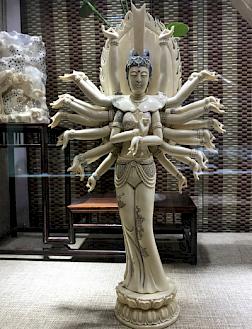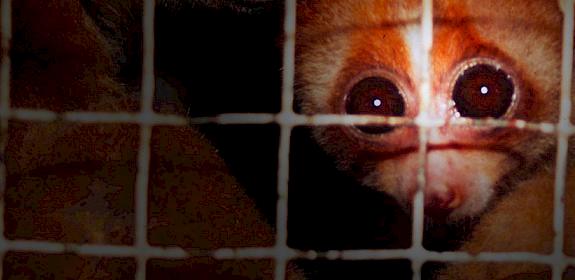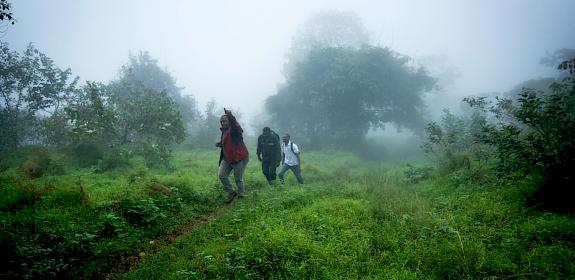
China's ivory market revisited
Ivory products for sale in China © Vince42 / Generic CC 2.0
i
- »
- Publications »
- Reports »
- China's ivory market: revisited
Published 12 August 2017
New study finds China’s ivory market shrinking ahead of incoming domestic ivory ban
Beijing, China, 12th August 2017, World Elephant Day—Following China’s announcement late last year of a domestic ivory trade ban by the end of 2017, TRAFFIC and WWF surveys have found that the number of ivory items offered for sale—in both legal and illegal ivory markets in China—has declined alongside falling ivory prices.
China's ivory market: revisited
Report author(s):
Yuankun Zhao, Ling Xu, Yu Xiao, Jing Guan, Wilson Lau
Publication date:
August 2017
key findings

Earlier this year, TRAFFIC and WWF researchers undertook a series of surveys of physical and online markets to assess their status after announcement of the incoming domestic ivory ban in China and the effectiveness of subsequent regulatory measures. The findings are published today in TRAFFIC and WWF’s new report Revisiting China’s ivory market in 2017.
At the time of its announcement, the ban was widely hailed by the international community as a game changer that could help to reverse the decline of wild African Elephant populations. It included a commitment to close over a third of the accredited ivory manufactures and retail stores by 31st March 2017, with the remaining two-thirds to be shut down before 31st December 2017.
Between April and May 2017, TRAFFIC and WWF staff visited 110 ivory stores in 23 cities, around 85% of all the stores accredited by the State Forestry Administration in 2015. Among them were 50 of the 55 stores shut down in the first round of closures, where the researchers found just one store still offering to sell ivory—albeit surreptitiously.
Of 60 stores surveyed, out of the remaining 88 slated to close by 31st December 2017, some 17 (28%) were found to be in violation of ivory registration and certification regulations to varying degrees. Lapses included failing to display accreditation licences and/or identification cards corresponding to displayed ivory items, as well as a lack of obligatory awareness materials. Meanwhile, four stores (7%) broke regulations by not operating in approved locations. Most stores were offering ivory items at significantly discounted prices.
Although some implementation challenges remain, it is very encouraging that the timetabled phase out of the domestic ivory trade appears to be on track
Zhou Fei, Head of TRAFFIC’s China Office and the Wildlife Trade Programme of WWF ChinaThe researchers also visited 503 physical outlets located in 22 cities where ivory was found illegally for sale. A total of 2,307 ivory products were observed, averaging five ivory items openly displayed per outlet surveyed. Although samples vary between survey years, this can at least be crudely compared with 9 items observed per shop in 2016 and 18 items observed per shop in 2007
Online, a total of 1,687 new advertisements for ivory items were found by the researchers between January to April 2017 on 31 targeted websites: a 29% decrease since the identical period in 2016. On social media, a one-day snapshot survey on 24th April 2017 of 35 targeted users found 301 illegal ivory advertisements, as well as 1,779 pictures and 27 videos of ivory items. On average, roughly nine advertisements, 51 pictures and one video per targeted user, representing a decrease of 28%, 15% and 47%, respectively, compared to a survey in April 2016.
The researchers also documented the prices for ivory items, and found a significant differential between those in the legal and illegal markets. In the legal ivory market, the average price of ivory chopsticks was USD542/pair, the corresponding prices in the illegal market were USD153 for a pair of chopsticks, lower by 72%. Compared to 2012, the average price of ivory chopsticks in the illegal market had declined by 57%. Data from law enforcement authorities also show that the price of raw ivory has been falling sharply in recent years: in Beijing by some 20–25% between 2015 and 2016, and by 50% in 2017.
“There is an apparent decline in the market presence of ivory items while prices are falling too—while once implemented, the blanket ban on commercial ivory trade should facilitate law enforcement efforts and raise consumer awareness about the illegality of the trade,” said Zhou Fei.
“This is a critical year for China’s domestic ivory ban and it is vital to be vigilant in monitoring its impacts as many challenges remain, such as ensuring stockpiled ivory is prevented from illegally entering markets at home or abroad.”
At the Convention on International Trade in Endangered Species of Wild Fauna and Flora (CITES) meeting held last year in South Africa, Resolution 10.10 on Trade in Elephant Specimens was revised to include a clear recommendation that “all Parties and non-Parties in whose jurisdiction there is a legal domestic market for ivory that is contributing to poaching or illegal trade, take all necessary legislative, regulatory and enforcement measures to close their domestic markets for commercial trade in raw and worked ivory as a matter of urgency.”
“TRAFFIC and WWF are working to support this CITES resolution and urge those Parties, especially China’s neighboring countries with less scrutiny and continued legal sales, to urgently consider adopting similar bans in order to avoid ivory moving into these markets and to give elephants a chance for a future free from poaching,” said Zhou Fei.
WWF UK, WWF US and GIZ on behalf of the German Federal Ministry for Economic Cooperation and Development (BMZ) and the German Federal Ministry for Environment, Nature Conservation, Building and Nuclear Safety (BMUB) are gratefully thanked for financial support for this study.
28% of stores
were found to be in violation of ivory registration and certification regulations
2,307
ivory products were found for sale in 503 physical outlets
A 29%
decrease on the number of online ivory adverts was found when compared to the previous year
for more information:
Sammi Li TRAFFIC, Senior Communications Officer, China



